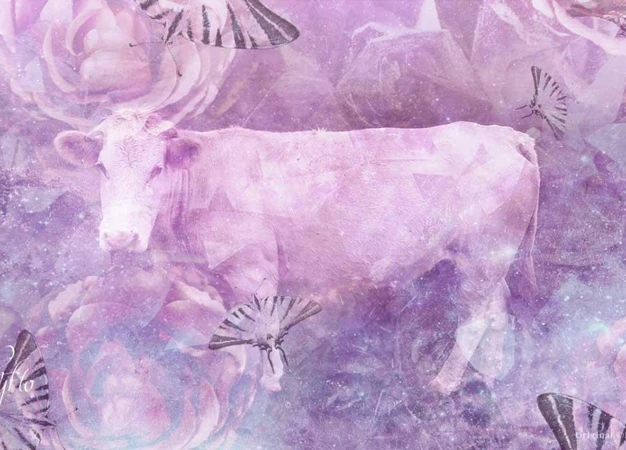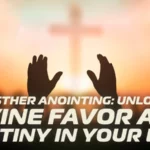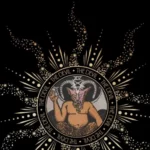Understanding the Symbolism of Seeing a Dead Cow in Hindu Dreams
Dreams have always been a source of intrigue and fascination across cultures and religions, offering glimpses into the subconscious mind and the spiritual realm. Hinduism, one of the oldest religions in the world, places great emphasis on interpreting dreams and understanding their symbolic meanings. In particular, the sighting of a dead cow in a Hindu dream is believed to hold significant symbolism and spiritual implications. In this article, we will delve into the rich tapestry of Hindu dream interpretation, exploring the importance of animals, the sacredness of cows, ancient scriptures, and the factors that influence the interpretation of such dreams. Through understanding and unraveling the symbolisms surrounding a dead cow in Hindu dreams, we can gain deeper insights into the spiritual world and the messages from the divine.
Contents
Understanding Hindu Dream Symbolism
- The Significance of Animals in Hindu Culture: Animals hold a special place in Hindu culture and are seen as manifestations of various deities. They symbolize different qualities and attributes, representing the divine energy that permeates all life. A deep respect and reverence for animals, including cows, are integral to the Hindu belief system.
- The Power of Dreams in Hinduism: In Hinduism, dreams are considered to be a channel through which the divine communicates with individuals. Dreams are seen as a spiritual journey where the subconscious mind unravels hidden truths and messages. They can provide guidance, warnings, or revelations, offering insights into past, present, and future events.
Understanding Hindu dream symbolism requires recognizing the significance of animals and acknowledging the power of dreams in Hindu culture. By delving into the unique interpretation of dreams, especially the symbolism surrounding a dead cow, we can gain profound insights into the spiritual world and its connection to our waking lives.
The Significance of Animals in Hindu Culture
In Hindu culture, the significance of animals stems from their embodiment of divine qualities and their association with various deities. Here are a few key points to understand the importance of animals in Hindu culture:
- Cow as a Sacred Animal in Hinduism: The cow holds a special place in Hinduism and is considered one of the most sacred animals. It is revered as the mother of all beings and symbolizes fertility, abundance, and purity. Cows are associated with Goddess Kamadhenu, who is believed to fulfill all desires.
- Elephant as a Symbol of Wisdom: The elephant is highly revered in Hinduism and is associated with Lord Ganesha, the remover of obstacles. Elephants symbolize strength, intelligence, and good luck. Their presence in Hindu temples and religious ceremonies represents the auspiciousness and prosperity they bring.
- Peacock as the Vehicle of God Kartikeya: Peacocks are heavily featured in Hindu mythology and are believed to be the vehicle of Lord Kartikeya, the son of Lord Shiva. They represent beauty, grace, and immortality. The vibrant feathers of the peacock symbolize the divine qualities and celestial nature.
The significance of animals in Hindu culture is vast and varied, with each animal carrying its own symbolism and spiritual connotations. By understanding the deep-rooted beliefs associated with these animals, we can appreciate their sacredness and their representation of divinity.
The Power of Dreams in Hinduism
In Hinduism, dreams hold immense power and significance. They are believed to be a means of divine communication, where the gods and goddesses convey messages, guidance, and insights. Hindus view dreams as a bridge that connects the conscious and unconscious realms, where spiritual truths and hidden knowledge can be revealed. Dreams are seen as a reflection of one’s thoughts, emotions, and experiences, and can offer glimpses into past lives and future events. The interpretation of dreams plays a crucial role in understanding one’s spiritual journey and seeking enlightenment. Throughout Hindu scriptures, there are numerous references to the power of dreams and their ability to provide deep spiritual insights.
Symbolic Meanings of a Dead Cow
Cow as a Sacred Animal in Hinduism:
In Hinduism, the cow holds a sacred and revered status. It is considered to be the embodiment of divine and maternal qualities, representing abundance, fertility, and nourishment. The cow is often associated with various Hindu deities and fulfills a central role in religious ceremonies and rituals. Its milk, Ghee (clarified butter), urine, and dung are also utilized in spiritual practices. Hence, the sighting of a dead cow in a Hindu dream carries profound symbolic meaning.
Cow as a Sacred Animal in Hinduism
The cow holds immense significance in Hinduism and is considered a sacred animal. It is revered as a symbol of purity, abundance, motherhood, and divine grace. Hindus consider cows to be the embodiment of the divine and believe that they possess gentle, nurturing qualities. In Hindu mythology, the cow is associated with deities such as Lord Krishna and Goddess Kamadhenu. The cow is also associated with the divine qualities of selflessness, generosity, and sustenance, serving as a reminder of the interconnectedness of all living beings. The reverence given to cows in Hinduism is deeply ingrained in the culture and is reflected in various rituals, customs, and even legal protections in certain regions. The sacredness of cows makes their appearance and symbolism in Hindu dreams particularly vital for interpretation.
The Importance of Cows in Hindu Dream Interpretation
- The Sacredness of Cows: Cows hold a revered status in Hinduism, considered as sacred animals. They are associated with motherhood, nourishment, and prosperity. In Hindu scriptures, cows are often linked to deities such as Lord Krishna, who is depicted as a cowherd and revered as the protector of cows.
The importance of cows in Hindu dream interpretation cannot be overstated. As an embodiment of divinity and abundance, the presence or absence of a cow in a dream carries significant symbolism. Whether alive or dead, the cow’s role in the dream holds important messages for the dreamer, signifying different aspects of life, spirituality, or personal beliefs.
Interpreting the Symbolism of a Dead Cow
In the realm of Hindu dream interpretation, the symbolism of a dead cow holds deep meaning and spiritual significance. The interpretation of this symbol can vary based on individual beliefs and the context of the dream. One possible interpretation is that the dead cow represents the end of a phase or a significant change in one’s life. It may symbolize the letting go of attachments or old ways of being, paving the way for growth and transformation. Alternatively, it could signify the need for nurturing and healing in certain aspects of life. While the interpretation of a dead cow in a dream can be subjective, understanding the sacredness of cows in Hindu culture and reflecting on personal experiences and emotions can provide insights into its symbolism and the messages it may hold.
Significance in Hindu Scriptures
- The Cow Symbolism in the Vedas: The Vedas, the oldest Hindu scriptures, hold profound meaning and symbolism related to cows. Cows are often associated with fertility, abundance, and prosperity. They are revered as the embodiment of divine qualities and are considered the givers of life-sustaining milk, which is seen as an elixir of nourishment.
- Ancient Texts and Imagery Relating to Dead Cows: In various ancient Hindu texts and scriptures, the symbolism of a dead cow is explored. These texts depict the death of a cow as a harbinger of misfortune, indicating the disruption of harmony, spiritual imbalance, or impending challenges in one’s life. The imagery of a dead cow in these texts serves as a metaphor for the loss of divine blessings and protection.
The significance of a dead cow in Hindu dreams can be better understood by examining its representation in Hindu scriptures. The symbology surrounding cows in the Vedas and the portrayal of dead cows in ancient texts shed light on the profound spiritual meanings associated with such dreams.
The Cow Symbolism in the Vedas
The Vedas, ancient scriptures of Hinduism, hold great significance in understanding the symbolism of cows. Cows are revered in the Vedas as a symbol of abundance, nourishment, and fertility. They are often associated with the divine goddess Aditi, who represents the nurturing aspect of motherhood. In the Rigveda, one of the oldest texts, cows are referred to as “the radiant daughters of the divine” and are seen as sacred beings. The Vedas also emphasize the importance of cow protection and the ethical treatment of cows. Understanding the symbolism of cows in the Vedas provides a deeper context for interpreting the symbolism of a dead cow in Hindu dreams, as it is intertwined with ideas of sustenance, fertility, and the divine feminine.
Ancient Texts and Imagery Relating to Dead Cows
Ancient texts and imagery relating to dead cows hold significant importance in Hinduism and provide valuable insights into the symbolism associated with such dreams. One ancient text that explores the significance of cows is the Vedas, the sacred scriptures of Hinduism. The Vedas describe cows as symbols of abundance, fertility, and nourishment, representing the life-giving power of nature. Additionally, ancient Hindu artwork and sculptures often depict cows in various religious scenes, symbolizing purity, divinity, and sacrifice. By examining these ancient texts and visual representations, we can enhance our understanding of the symbolism surrounding a dead cow in Hindu dreams and its connection to Hindu religious beliefs and practices.
Factors Influencing Interpretation
- Context and Personal Beliefs: The interpretation of a dream, including the symbolism of a dead cow, can vary depending on the individual’s cultural background, personal beliefs, and the specific circumstances surrounding the dream. Context plays a crucial role in understanding the hidden meanings behind the dream and its relevance to the dreamer’s life.
- Different Interpretations based on Dream Details: The symbolism of a dead cow in a Hindu dream can be influenced by various details within the dream itself. Factors such as the color of the cow, its surroundings, and the dreamer’s emotions during the dream can all impact the interpretation. Additionally, the presence of other elements or symbols within the dream may provide further insight into the message being conveyed.
When considering the symbolism of a dead cow in a Hindu dream, it is essential to take into account the context and personal beliefs of the dreamer as well as the specific details present in the dream. By carefully analyzing these factors, one can gain a deeper understanding of the message being communicated by the divine through the dream.
Context and Personal Beliefs
Context and Personal Beliefs: When interpreting the symbolism of seeing a dead cow in a Hindu dream, it is important to consider the individual’s personal beliefs and the context of the dream. Hindu dream interpretation is not a one-size-fits-all approach, as the meaning may vary depending on the cultural background, personal experiences, and spiritual journey of the dreamer. Symbols in dreams are often subjective and can be influenced by one’s unique understanding of Hindu scriptures, teachings, and practices. It is essential to reflect on the specific circumstances surrounding the dream and how they resonate with one’s own beliefs and experiences. Taking into account the context and personal beliefs can lead to a more nuanced and accurate interpretation of the symbolic messages presented in the dream.
Different Interpretations based on Dream Details
When interpreting dreams in Hindu culture, the specific details of the dream play a crucial role in understanding their meaning. Different dream details can lead to varying interpretations of the symbolism of a dead cow. For example, the location of the dream, the presence of other animals or people, the emotions experienced during the dream, and other contextual elements can all influence the interpretation. The dreamer’s personal beliefs, experiences, and cultural background also come into play, as individual perspectives may shape the understanding of the symbolism. It is essential to analyze the dream details comprehensively and consider their potential significance when attempting to uncover the message behind seeing a dead cow in a Hindu dream.
Actions to Take After Dreaming of a Dead Cow
When confronted with the symbolism of a dead cow in a Hindu dream, it is important to take certain actions to further understand the message conveyed by the dream. Here are two key steps to consider:
1. Reflecting and Journaling: Take time to reflect on the emotions, imagery, and overall context of the dream. Write down the details in a dream journal, noting any significant symbols, feelings, or insights that arise. By recording and reflecting on the dream, you can gain a deeper understanding of its meaning and how it may relate to your personal life and spiritual journey.
2. Seeking Guidance from Hindu Scholars: Consulting with knowledgeable Hindu scholars or spiritual leaders can provide valuable insights into the symbolism of a dead cow in your dream. They can offer interpretations based on their extensive study of Hindu scriptures, cultural beliefs, and spiritual experiences. Through their guidance, you may gain a more nuanced understanding of the dream’s significance and how to apply its wisdom to your life.
Taking these actions after dreaming of a dead cow allows for a deeper exploration of the dream’s symbolism and allows for personal growth and spiritual understanding.
Reflecting and Journaling
- Engage in Self-Reflection: After experiencing a dream of a dead cow, take time to reflect on your emotions, thoughts, and any significant details or symbols that stood out to you. Consider the emotions evoked by the dream and what they may represent in your waking life. This introspection can help in uncovering personal associations and meanings.
- Maintain a Dream Journal: Keeping a dream journal is a valuable practice to record and analyze your dreams consistently. Write down the details of your dream, including the dead cow’s appearance, location, and any other notable factors. Explore the possible connections or patterns between this dream and your waking life experiences. Over time, this record can help identify recurring symbols or themes for deeper interpretation.
Reflecting on your dreams and maintaining a journal are essential tools for understanding the symbolism of a dead cow in Hindu dreams. By engaging in self-reflection and using a dream journal, you can gain insights and gradually unravel the messages conveyed by your subconscious mind.
Seeking Guidance from Hindu Scholars
When faced with the symbolism of seeing a dead cow in a Hindu dream, seeking guidance from Hindu scholars can provide valuable insights and a deeper understanding of the dream’s meaning.
1. Consulting Expertise: Hindu scholars, also known as gurus or spiritual advisors, possess extensive knowledge of Hindu scriptures, mythology, and symbolism. They can help decipher the intricate nuances of dream interpretation and provide context-specific meanings based on individual circumstances.
2. Interpreting Scriptural Texts: Hinduism is rich in ancient texts such as the Vedas, Puranas, and Upanishads, which contain profound spiritual wisdom. Hindu scholars can help navigate these texts and refer to relevant passages or stories that shed light on the symbolism of a dead cow in dreams.
3. Offering Personalized Guidance: Hindu scholars understand that dream interpretation is subjective and influenced by one’s personal beliefs and experiences. They can provide personalized guidance, taking into account individual circumstances, cultural background, and the specific details of the dream to arrive at a more accurate interpretation.
By engaging with Hindu scholars, individuals can gain clarity and a comprehensive understanding of the symbolism behind the sighting of a dead cow in their dream, allowing them to navigate its spiritual significance and apply the lessons to their waking lives.
Conclusion
- Reflecting and Journaling: After dreaming of a dead cow, take time to reflect on the emotions, symbols, and messages that arose during the dream. It can be helpful to keep a dream journal to record your dreams and their interpretations. This practice allows for deeper self-reflection and can aid in understanding the hidden meanings behind the dream.
- Seeking Guidance from Hindu Scholars: If you find yourself perplexed or in need of further understanding, seek guidance from Hindu scholars or spiritual leaders who have extensive knowledge in Hindu dream interpretation. Their expertise can provide valuable insights and interpretations based on the specific details of your dream.
Interpreting the symbolism of seeing a dead cow in Hindu dreams requires a nuanced understanding of Hindu culture, the significance of animals, and the power of dreams. By delving into ancient texts, personal beliefs, and seeking guidance from experts, we can unravel the deeper meaning behind these dreams and gain insight into our spiritual journey.
Frequently Asked Questions
FAQs About Interpreting the Symbolism of Seeing a Dead Cow in Hindu Dreams
Q: What does it mean to dream about a dead cow in Hinduism?
A: Dreaming of a dead cow is believed to be a symbol of impending misfortune or an indication of a major change or transformation in one’s life.
Q: Is the symbolism of a dead cow the same for everyone who dreams about it?
A: The interpretation of dreams, including the symbolism of a dead cow, can vary based on individual beliefs and personal context. Cultural upbringing, spiritual background, and the specific details of the dream play a significant role in interpretation.
Q: Why are cows so important in Hinduism?
A: Cows are considered sacred in Hinduism due to their association with deities and the belief that they embody qualities such as purity, selflessness, and abundance. They are seen as providers of nourishment and represent the divine feminine energy.
Q: Are there any specific scriptures in Hinduism that mention the symbolism of dead cows?
A: The Vedas, ancient religious texts of Hinduism, contain references to the symbolism of cows and the spiritual significance they hold. These texts provide insights into the interpretation of dreams involving cows, including their death.
Q: Can dreaming of a dead cow be interpreted as a spiritual message?
A: Yes, dreaming of a dead cow can be interpreted as a spiritual message. It may signify the need for introspection, a warning of impending challenges, or an indication of the need for change and transformation in one’s spiritual journey.
Q: Is there a possibility that dreaming of a dead cow has a positive interpretation?
A: While dreaming of a dead cow is generally associated with negative symbolism, interpretation may vary. Some believe that it could represent the completion of a cycle or the release of burdens, leading to personal growth and spiritual evolution.
Q: Can dreams about a dead cow have a connection to past lives?
A: In Hinduism, dreams are thought to provide glimpses into past lives and karmic patterns. Dreams involving a dead cow may be seen as reflections of unresolved issues or experiences from previous incarnations.
Q: How can one interpret the symbolism of a dead cow in their dream?
A: Interpretation depends on various factors, such as personal beliefs, cultural context, and the specific details of the dream. Journaling and reflecting on the emotions and experiences associated with the dream can help in uncovering its personal meaning.
Q: Are there specific rituals or actions that should be taken after dreaming of a dead cow?
A: There are no specific rituals prescribed, but contemplating the dream, seeking guidance from Hindu scholars or spiritual mentors, and introspecting on the possible messages conveyed by the dream can be helpful.
Q: Can dreams about a dead cow be ignored or brushed aside as irrelevant?
A: Dreams, including those involving a dead cow, should not be disregarded lightly. They can offer valuable insights into one’s subconscious, spiritual journey, and potential challenges or opportunities in life.







